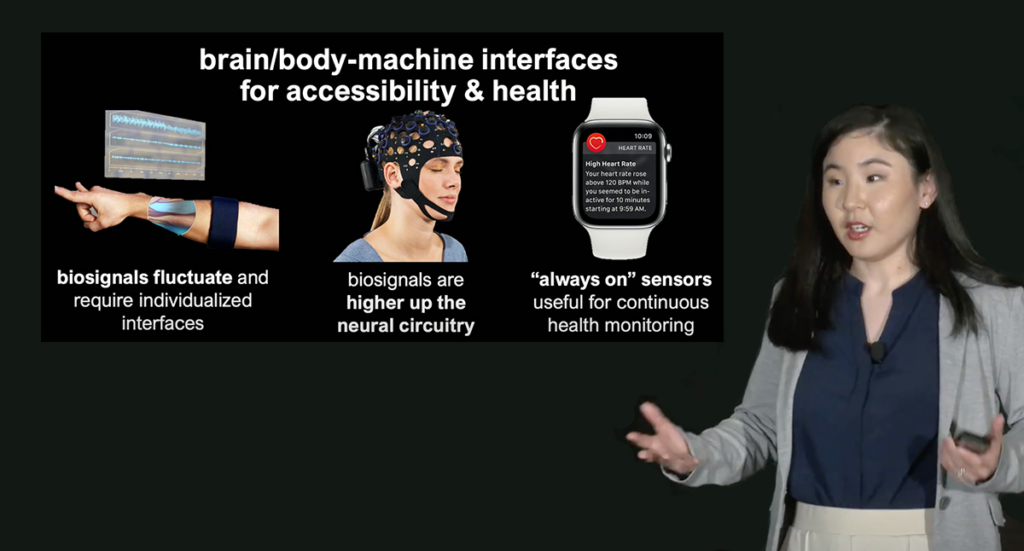April 11, 2023
The machines and devices we use every day – for example, touch screens, gas pedals, and computer track pads – interpret our actions and intentions via sensors. But these sensors are designed based on assumptions about our height, strength, dexterity, and abilities. When they aim for the average person (who does not actually exist), they aren’t usable or accessible.
CREATE Post-doctoral student Momona Yamagami seeks to integrate personalization and customization into sensor design and the resulting algorithms baked into the products we use. Her research has shown that biosignal interfaces that use electromyography sensors, accelerometers, and other biosignals as inputs provide promise to improve accessibility for people with disabilities.
In a recent presentation of her research as a CREATE postdoctoral scholar, she emphasizes that generalized models that are not personalized to the individual’s abilities, body sizes, and skin tones may not perform well.

Individualized interfaces that are personalized to the individual and their abilities could significantly enhance accessibility. Continuous (i.e., 2-dimensional trajectory-tracking) and discrete (i.e., gesture) electromyography (EMG) interfaces can be personalized to the individual:
- For the continuous task, we used methods from game theory to iteratively optimize a linear model that mapped EMG input to cursor position.
- For the discrete task, we developed a dataset of participants with and without disabilities performing gestures that are accessible to them.
- As biosignal interfaces become more commonly available, it is important to ensure that such interfaces have high performance across a wide spectrum of users.
Momona Yamagami is completing her time as a CREATE postdoctoral scholar, advised by CREATE Co-director Jennifer Mankoff. Starting summer 2023, Yamagami will be an Assistant Professor at Rice University Electrical & Computer Engineering as part of the Digital Health Initiative.